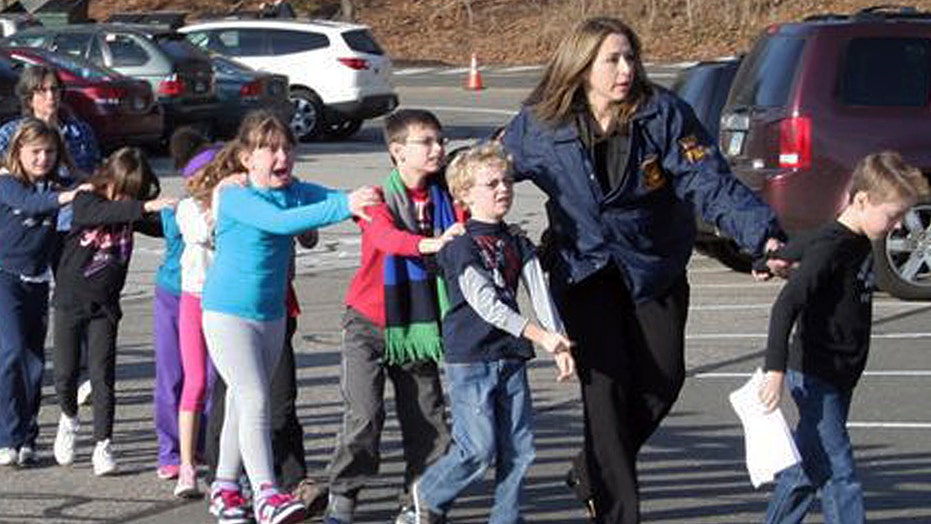It happened again.
As the horrible elementary school shooting story out of Newtown, Connecticut unfolded on Friday, journalists raced to be the first in providing details. They inundated every platform (television, radio, digital) with wave after wave of information. The problem is that it was misinformation.
News organizations first reported the alleged shooter as 24 year old Ryan Lanza….wrong.
Police say it was younger brother Adam.
Howard Kurtz, the Daily Beast and Newsweek’s Washington bureau chief writes, “While fragmentary reports after a mass shooting are often marked by errors, it is difficult to imagine a worse blunder than identifying the wrong man as the killer."
Journalists said Lanza shot his mother at the Sandy Hook Elementary School….wrong. Investigators say she was shot and killed at her home.
Early reports stated that Lanza had killed his father in Hoboken, NJ….wrong.
The elder Lanza is alive and does not live in New Jersey.
Those are just a few of the examples of the poor journalism displayed moments, minutes and hours after the incident.
The glaring errors are the outcome of an impatient media culture that too often steps on the gas when it should put on the brakes.
The mistakes were done by the same journalists who often criticize bloggers and other citizen journalists of spewing erroneous information. Traditional media often cites their proper training, editorial filters and experience in preventing blunders from happening. Well, they surely were not on display on Friday.
This is not the first time (and certainly not the last) that media organizations are inaccurate in their reporting.
In the Aurora movie theater shooting this summer, ABC News' Brian Ross suggested that the suspect might be affiliated with the Colorado Tea Party. That was a mistake that Ben Sherwood, president of ABC News, later said he hoped his news organization would learn from.
In the 2011 shooting of then congresswoman Gabrielle Gifford near Tucson, Arizona there were conflicting reports about whether or not she was alive. National Public Radio (NPR) was among the first to report that Gifford had died. It was a mistake that took an emotional toll on Gifford’s family members.
As I heard the rapid information on the radio and saw it on television - I heard the voice of one of my first mentors: “First be right, then be first”.
I was 25 years old when he explained to me that the product of any news organization is content. He taught me that journalists must jealously guard their brand’s credibility and integrity because once you lose the community’s trust…it’s nearly impossible to get it back.
Almost 20 years later, as I have my whole career – I heard that voice when earlier this month, information on Twitter revealed there was a shooting at the Kansas City Chiefs practice facility.
I was in the control room overseeing the morning edition of SportsCenter. As in all breaking news stories, information was coming in fast. It was difficult to decipher all of it.
To the credit of all of my ESPN colleagues, we exercised restraint. While we had access to images and reports about the crime – we did not present it to our audience until we felt sure that the information was accurate.
I could read and hear (from other news organizations) that the alleged gunman was linebacker Jovan Belcher, but did not go with that information on the air because our news editors couldn’t confirm it.
Pete Dougherty of Sports Media recognized ESPN’s show of restraint, “ESPNews reported the story when it broke and continued to update viewers, but did not identify the player as linebacker Jovan Belcher — even though numerous Internet reports did — until police released the name."
Journalists eager to be the first to report the elementary school shooting in Newtown Connecticut failed in not only sharing correct information, but also remembering that it is the responsibility of journalists to provide clarity and comfort in such chaotic, frightening moments.
As vice president of news at the Telemundo television station serving the New York City metropolitan area, I would often engage my team in conversations about ensuring our reporting was always fair and accurate.
I would tell them to keep to these three practices:
- Be sincere with the audience about what you know and don’t know. They understand that it is a breaking news situation and that you don’t have all of the information at your command.
- Be patient and wait. Don’t report information that you cannot confirm with several other sources. Never report what others report, only what you can.
- Be accountable for what you report. Mistakes will happen because of the nature of breaking news stories...just make sure to own up to it and correct the information.
It is my sincere hope that in the aftermath of this latest terrible crime, news managers across the country are having similar conversations with their teams.
Our job is to inform, empower, defend and protect the community we serve….not to add more panic and confusion.

